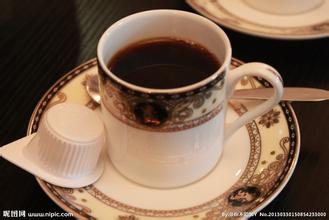Introduction of Kaddura Flavor description, Grinding scale and Regional treatment of Honduran Coffee varieties
Introduction of Kaddura Flavor description, Grinding scale and Regional treatment of Honduran Coffee varieties
This batch of Holy Rose processing Plant (Beneficio Santa Rosa), from the Holy Rose place in the western province of Columbine, is a small cooperative of the local community, established in 2005 and supported by a non-profit organization, TechnoServe, to provide production technology and poverty eradication. The cooperative established a Mejoramiento Agra í cola Sostenible (MAS) assistance program to support 6000 families of small coffee farmers and provide technical assistance with the aim of producing high quality coffee beans. Coffee is planted from 1500 to 2000 meters above sea level. The main varieties of coffee are Caturra, Catuai, Bourbon and Pacas and Typica. Flavor reference: sweet, cream, brown sugar, melon sweet, mint, caramel milk. The acidity of the fruit is not obvious, it is layered and has a strong sweet taste of caramel. The aroma is harmonious, the flavor is rich, the flavor is sweet, warm and smooth rainforest alliance RFA (Rainforest Alliance) certification
Is a non-profit international non-governmental environmental protection organization whose mission is to protect the global ecosystem and the human and wildlife that make a living by changing land use patterns, business and consumer behavior.
Tropical rain forest certification
Rainforest Alliance RFA (Rainforest Alliance) certification refers to a farm that meets the standards set by the Rainforest Alliance, which protects the farm and its surrounding ecosystem, imposes some restrictions on the use of pesticides, and evaluates benchmarks such as waste management. Only coffee that has been evaluated and certified can be called "Rainforest Alliance certified coffee". Among them, the certification benchmark for coffee stipulates that traditional farming methods cultivated in the shade of primary forests are adopted, which are beneficial to the protection of the ecosystem. Some of the proceeds from the alliance are also used for the protection of wildlife in tropical rainforest animal reserves and the improvement of workers' lives.
The only geisha (Geisha Rose Summer) can reach the peak, which is the impression of Panamanian coffee in the minds of most people. In May 2007, in the roaster Cup Test Competition held by the American Fine Coffee Association, Rosa Panamanian won the honor of "the world's best coffee" and sold at a high auction price of 130 US dollars per pound, setting a world high. In the rosy summer, which is like a fish in water on the world stage, there is a strong aroma of citrus, jasmine and other fragrant flowers, with bright and changeable acidity. Although the output from Panama is small, there has long been a saying in the coffee industry that "one Panamanian bean is worth three beans", which shows its high quality. Seemingly unpopular coffee producing area, Honduran coffee is relatively unfamiliar to many people because of the turbulent times, but it is one of the main coffee exporters in Central America, second only to Guatemala. Two kinds of coffee in Honduras are the most famous: "Highland Coffee", which grows at an altitude of 100-1500 meters, and "specially selected Highland Coffee", which represents the highest level of Honduras at an altitude of 1500-2000 meters. The balanced taste of the coffee beans here is greatly added to the taste of the coffee beans here. It is moderately sour and bitter. Unlike Costa Rica, the coffee industry set sail very early, and coffee farmers can enjoy a very high status here, which can be called a coffee maker's paradise. And Costa Rica's law allows only Arabica coffee, which is rare in the world. High-quality Costa Rican coffee beans, known as "extra hard beans", can withstand planting conditions above 1500 meters above sea level. In addition to the traditional washing method, Costa Rica also created a "Honey Coffee" half-sun treatment method, which makes the coffee flavor bright and sweet.

Important Notice :
前街咖啡 FrontStreet Coffee has moved to new addredd:
FrontStreet Coffee Address: 315,Donghua East Road,GuangZhou
Tel:020 38364473
- Prev

Introduction of Coffee Bean Flavor description and processing method in Mantenin Aceh region of Indonesia
Indonesia Mantenin Aceh producing area Coffee Bean Flavor description processing method the producing area of Lindong is located next to the famous tourist area LAKE TOBA (Lake dopa) in Sumatra, where the elevation is 1400-1800, and the tree species are Jember, Garundang Typica and Ateng. Once upon a time, Lindong's coffee was famous, but now coffee farmers there are in order to promote coffee.
- Next

Costa Rica Coffee Bean Flavor Description Grind Treatment Variety Features
Costa Rica's climatic conditions are completely different, completely reversing the classification of the four seasons of the year. There are only two seasons here, April to December is the rainy season with much rainfall, and the end of December to April is the dry season, also known as summer. Average annual temperatures range from 15 ° C to 26 ° C in San Jose, the capital; temperatures are relatively high along the coast and average overnight temperatures in the Caribbean are 2 ° C.
Related
- Detailed explanation of Jadeite planting Land in Panamanian Jadeite Manor introduction to the grading system of Jadeite competitive bidding, Red bid, Green bid and Rose Summer
- Story of Coffee planting in Brenka region of Costa Rica Stonehenge Manor anaerobic heavy honey treatment of flavor mouth
- What's on the barrel of Blue Mountain Coffee beans?
- Can American coffee also pull flowers? How to use hot American style to pull out a good-looking pattern?
- Can you make a cold extract with coffee beans? What is the right proportion for cold-extracted coffee formula?
- Indonesian PWN Gold Mandrine Coffee Origin Features Flavor How to Chong? Mandolin coffee is American.
- A brief introduction to the flavor characteristics of Brazilian yellow bourbon coffee beans
- What is the effect of different water quality on the flavor of cold-extracted coffee? What kind of water is best for brewing coffee?
- Why do you think of Rose Summer whenever you mention Panamanian coffee?
- Introduction to the characteristics of authentic blue mountain coffee bean producing areas? What is the CIB Coffee Authority in Jamaica?

